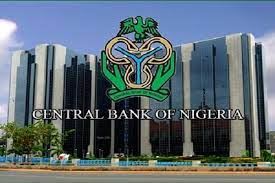In its efforts to address surplus liquidity in the banking sector, the Central Bank of Nigeria (CBN) successfully generated a significant N7.7 trillion through Nigerian Treasury Bills (NTBs) and Open Market Operations (OMO) in the first quarter of 2024.
This depicts a substantial 383% surge compared to the N1.59 billion acquired by the CBN in Q1 2023.
A detailed analysis showed that in the first quarter of 2024, the Central Bank of Nigeria sold a total of N5.6 trillion worth of NTBs, a significant increase from the N1.59 trillion sold in the first quarter of 2023. Additionally, the total OMO sales in Q1 2024 amounted to N2.06 trillion, compared to no OMO sales in Q1 2023.
In Q1 2024, the total subscription of NTBs by foreign and local investors amounted to N21.1 trillion, with N2.21 trillion being offered.
The stop rates on NTB have seen a notable increase from the initial auction in January to the final auction in March 2024. Specifically, the rates climbed from 2.44% to 16.24% for a 91-day tenor bill, from 4.22% to 17% for a 182-day tenor bill, and from 8.3995% to 21.124% for a 364-day tenor bill.
In his remarks regarding the progress, Mr. David Adnori, the Vice President of Highcap Securities Limited, highlighted that NTBs are widely regarded as a highly secure investment option due to their government backing.
“As the rate on NTB increases, it becomes more attractive to investors who are seeking a risk-free investment as they may choose to invest in Treasury Bills rather than other riskier investment options. The CBN had lure investors with attractive interest rate otherwise most of these auctions will under subscribed. The performance of the one-year bills showed that investors had confidence in the current government and the reforms it had embarked on.
“Firstly, the investors are seeking higher rates for funding due to CBN signaling further tightening due to accelerating inflation and other factors. Secondly, interest seems skewed towards the longer end of the curve, which is an indication of confidence in the government and its reforms. Also, the massive over–subscription shows the significant system liquidity.” He said.



